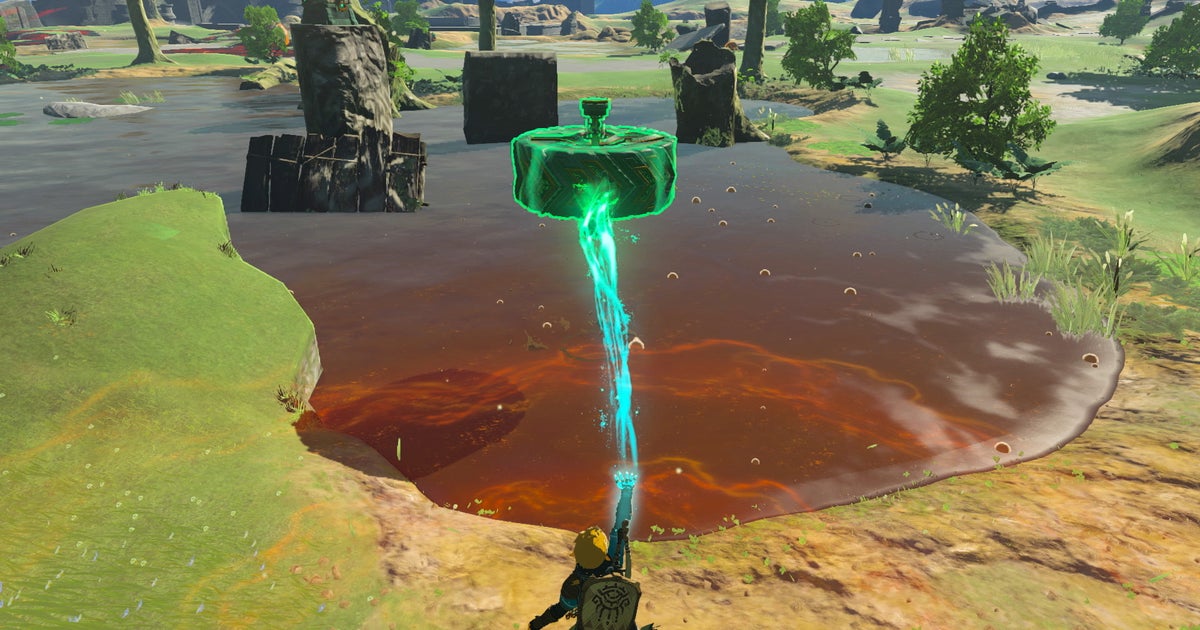You know how a lot of us spent a good few months at least last year just building weird, wacky and/or impressive things in The Legend of Zelda: Tears of the Kingdom? Well, during a panel at GDC, some of the fine folks who worked on the game at Nintendo have offered a bit more insight into how the amazing physics system that made all of that possible came to be.
The answer involves flying horses, just in case you need a reason to read on. But yeah, getting back on track, all of this happened well before the game was, according to Nintendo in that lawsuit against the creators of the Yuzu emulator that ended up leading to that emulator no longer being a thing, pirated a million times before it even came out.
“Multiplicative gameplay”. What’s that? Well, it’s Nintendo’s phrase for the philosophy behind both Breath of the Wild and Tears of the Kingdom, which essentially boils down to letting people mess about with actions and objects to create a bunch of interesting possibilities and scenarios. As outlined in this GDC talk (thanks, IGN), Ultrahand came about as an extension of that idea, letting people slam mutiple objects together like you did when you were an unruly five year old.
It took a while to get that working as intended though, unsurpisigly given all of the other stuff at play in the game. Apparently, one early prototype would see a horse and cart just fly straight up into the air if you tried to load a single stone onto the latter. I assume it didn’t just stay up there forever, but the developers seemingly didn’t confirm or deny that, so maybe there’s a poor horse still just chilling in the stratosphere in an early build of ToTK.
That poor horse wasn’t alone either. “I would hear things like, ‘It broke! It went flying!’ And I’d respond with, ‘I know! We’ll deal with it later!’”, physics programmer Takahiro Takayama explained, demonstrating the most relatable game development mindset I’ve ever heard. The developers discussed a number of ways they had to go about actually dealing with it later.
For example, switching objects like gates to being physics-driven, so that everything in the game – something that added some different potential solutions to puzzles involving them – was one step. Another was having the entire team work together on all of the complex objects that can be combined in different ways to make a vehicle, with functionality often having to take precedence over artistic design.
And while they were doing all of that, some poor horse was probably floating around in the stratosphere, an early casualty in the war to innovate. I hope it’s doing ok.
If you’re interested in reading about more of the stuff that’s been happening at GDC, its Awards ceremony didn’t shy away from industry layoffs and the situation in Gaza.
Yeah, I know that’s a bit of a change of pace.





















